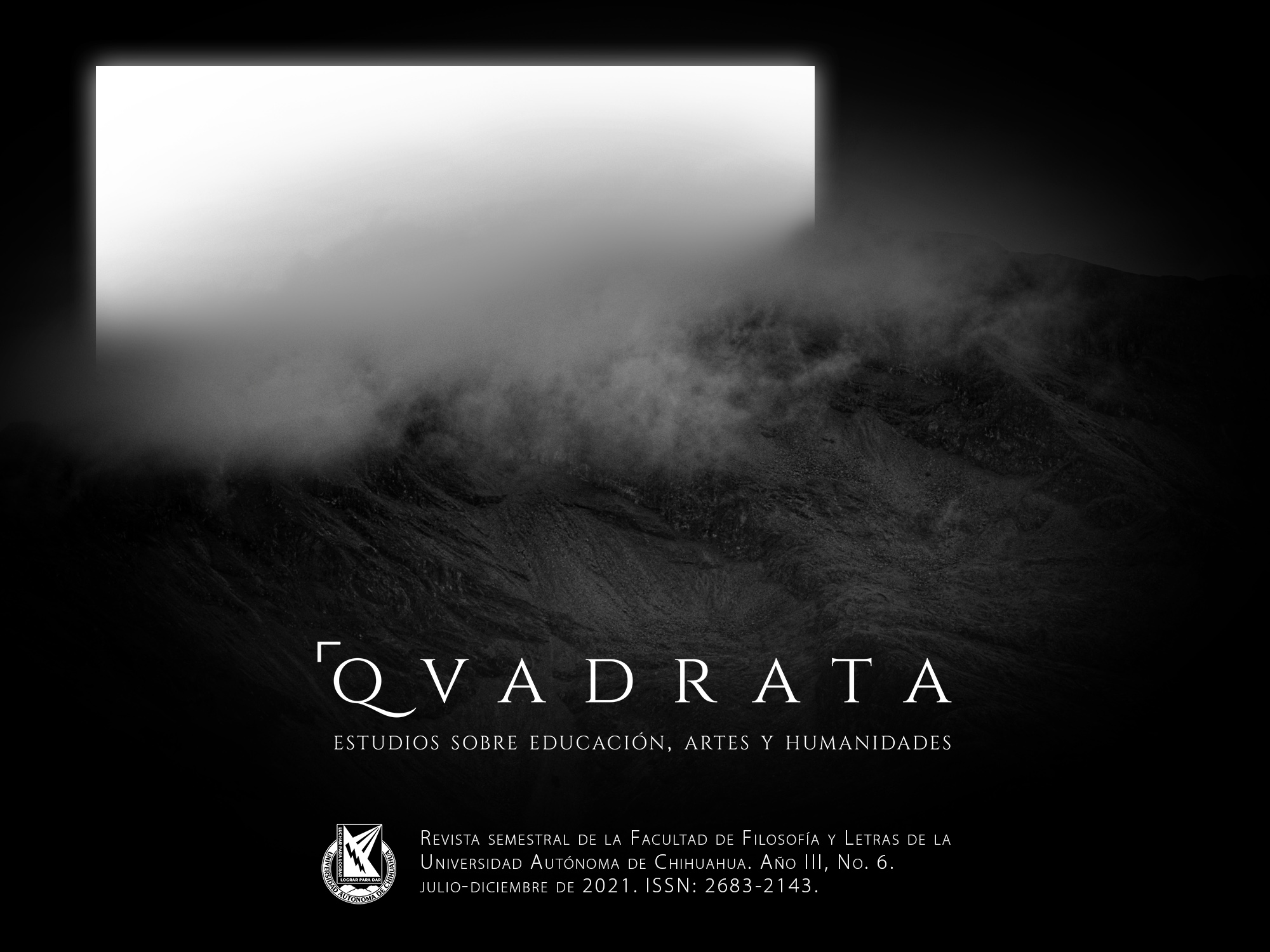Sacredness and transcendence: The Aeneid the foundationof power in Caesar Augustus
DOI:
https://doi.org/10.54167/qvadrata.v3i6.886Keywords:
Sacredness, Transcendence, Power, AuthorityAbstract
From the identification of certain implicit metaphorical resources in the verses of the book The Aeneid of the poet Virgilio, the proposal of this article is to reveal the sacred-political content implicit in the scriptural operation of the Mantuan, plus its ascription to the restorative and foundational policy. of Emperor Caesar Augustus in 1st century BC Rome In the core, the way in which Virgil, by recovering elements and figures typical of tradition and the configuration of the ancient Roman family, marks his text with an allegorical power that endows the epic of Caesar with sacredness and transcendence is observed.
References
Buono-Core, Raúl. «Res Gestae Divi Augusti.» Cuadernos de Historia 8 (1988): 149-165.
Coulanges, Fustel de. La ciudad antigua. Ciudad de México: Editorial Porrúa, 2003.
Fernando Gascó de la Calle, Jaime Alvar Ezquerra. «Alto Imperio romano.» Luis García Moreno, Fernando Gascó de la Calle, Jaime Alvar Ezquerra, Francisco Javier Lomas Salmonte. Historia del mundo clásico a través de sus textos. 2. Roma. Madrid: Alianza Editorial, 2014. 129-306.
Suetonio, Gayo. Vida de los doce césares. Madrid. Austral ediciones, 2019.
Virgilio, Publio. Eneida. Trad. Alfonso Cuatrecasas. Madrid: Espasa, 2012





 QVADRATA. Estudios sobre Educación, Artes y Humanidades año V, número 9, enero-junio de 2023, es una publicación semestral editada por la Universidad Autónoma de Chihuahua. Calle Escorza #900. C.P. 31000, Chihuahua, Chih. Tel. (614) 439-1500 ext. 3844,
QVADRATA. Estudios sobre Educación, Artes y Humanidades año V, número 9, enero-junio de 2023, es una publicación semestral editada por la Universidad Autónoma de Chihuahua. Calle Escorza #900. C.P. 31000, Chihuahua, Chih. Tel. (614) 439-1500 ext. 3844, 
